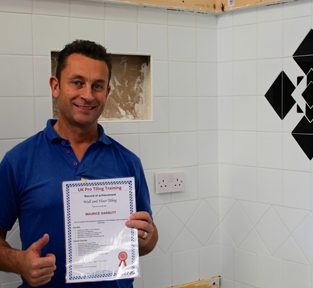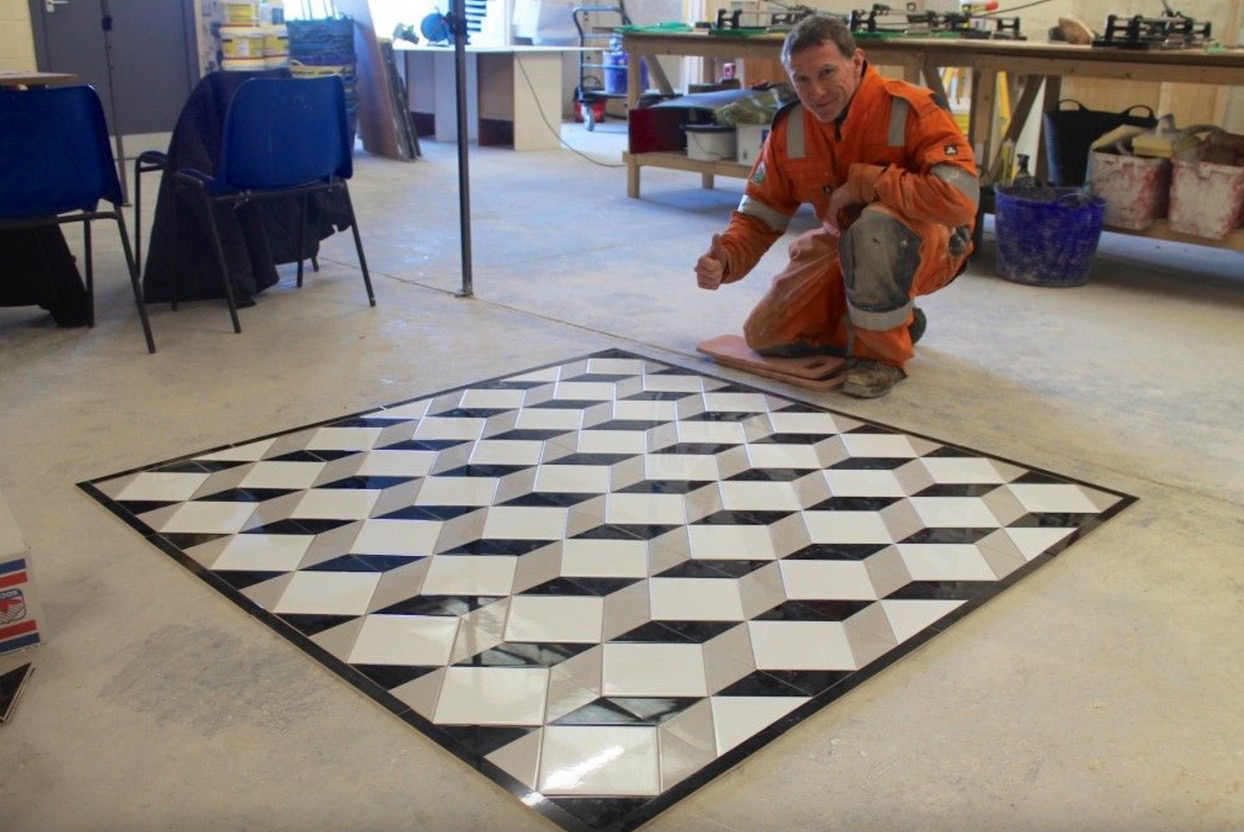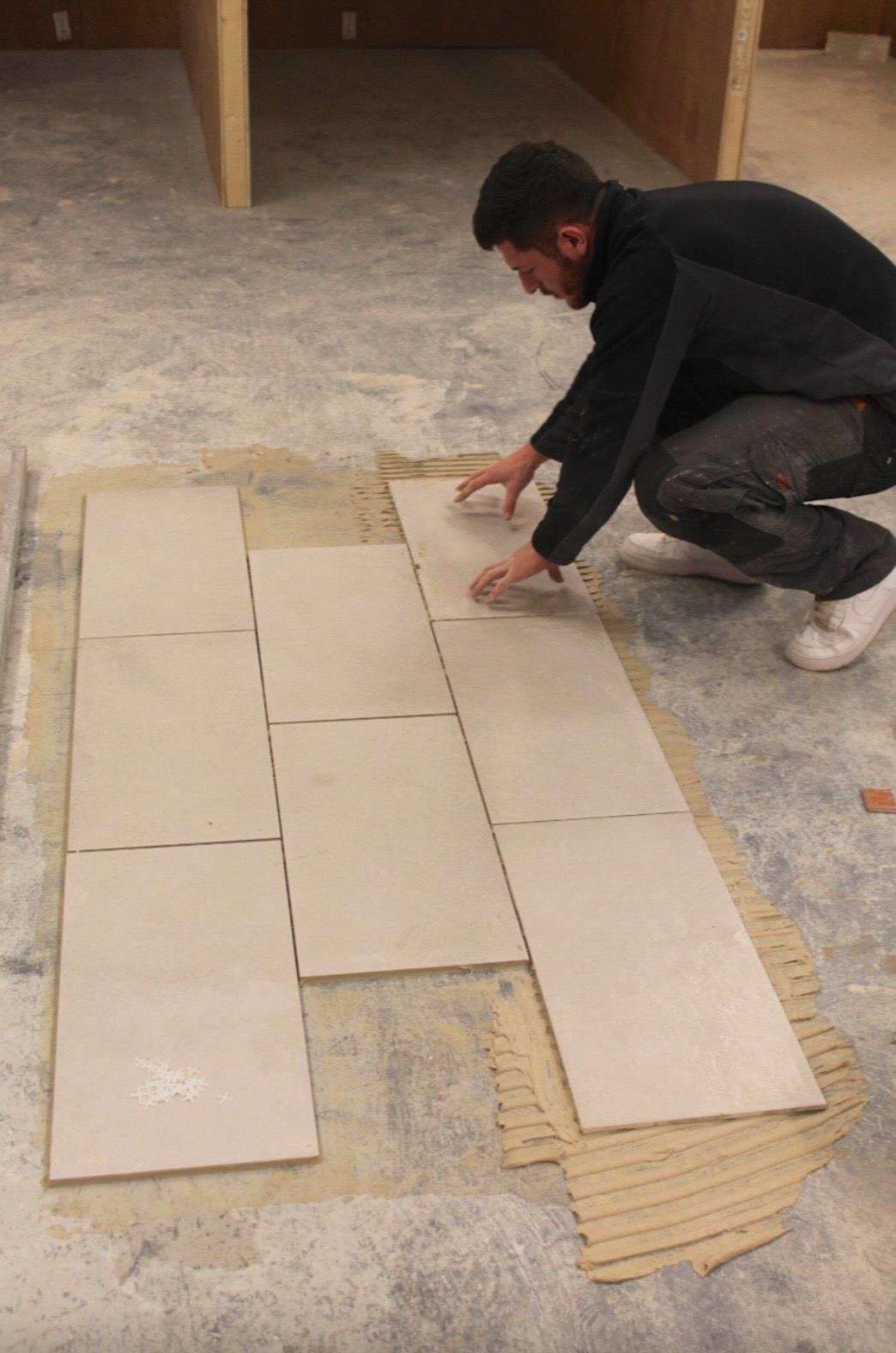How to Become a Tiler
 Tiling is often a career that people go into at an older age. After all, the process of laying tiles is not taught in schools. That’s why tiling courses, accessible to those who have been out of the learning environment and trained in other disciplines, are extremely important for those looking to start a new career in tiling.
Tiling is often a career that people go into at an older age. After all, the process of laying tiles is not taught in schools. That’s why tiling courses, accessible to those who have been out of the learning environment and trained in other disciplines, are extremely important for those looking to start a new career in tiling.
Tiling is essentially a career that, despite popular opinion, is not just for builders, painters and decorators, neither is it unsuitable for women. In fact, people go into tiling from a range of different working backgrounds and there are many successful and well-established female tilers, as well as tilers who have work backgrounds that are completely disassociated with the tiling industry, like retail and catering. Ultimately, a good tiling course produces great tilers, no matter what their age, background or experience.
If you”re thinking about becoming a tiler, then here’s how to do it.
Do your research
First of all, try to get to grips with what a tiling career actually involves, particularly if you”re planning on setting up your own business.
You may think, at first, tiling is simply a case of buying the tiles, laying them and that’s it, job done. In actual fact, there is a lot of behind the scenes work involved in a tiling project, from establishing a business plan, to gaining clients, measuring up, ensuring you meet client expectation, the tiling job itself and client feedback.
It would be useful to research the day-to-day work of a tiler, how much they tend to earn and what you can expect from a tiling career.
Some tasks involved in tiling are: Setting out the area to be tiled, cutting tiles, preparing the area to be tiled and the tiling process of fixing the tiles itself.
How to become a tiler
Although there are no set requirements to become a tiler by law, it is essential that you have a qualification in wall and floor tiling in order to be able to practice as a reliable and effective tiler.
It is possible to become a tiler by gaining an apprenticeship alongside practical experience, however, many people choose to complete a professional tiling course.
Consider your strengths and weaknesses
There are certain skills that are involved with tiling and, ultimately, you should consider whether you are strong with practical tasks, can follow design patterns, can complete tasks accurately and to a good level of detail, have the mathematical ability to calculate costs and quantities of materials, and can provide good customer service. You’ll also need to be fairly creative and be able to keep your paperwork and accounts up-to-date.
Find a good tiling course
Essentially, a good tiling course leads to a good tiler. At UK Pro Tiling Training, we have an array of professional tiling courses that can stand you in good stead for a tiling career. Many past students often write back to us detailing their experience of building up their tiling business after training with us and their recent successes.
Make an effort
Finding a good tiling course is, of course, just one element of the journey to become a tiler. It is no good half-heartedly turning-up to the practical and theory sessions, instead it is important to make an effort and learn all you can while you have the opportunity.
Be confident
When you have completed your tiling course and qualified as a tiler, be confident to use your skills and expertise. You may need to advise your customers about the best way to deal with the job in hand, perhaps providing advice on materials, costs, complications and how long you think the project will take.
Finally, don’t be afraid to carry out further research when you have qualified and keep enhancing your skills. Additionally, you should feel confident to contact your tiling tutor, even when you are in business, if you feel there is anything they could help you with. At UK Pro Tiling Training, we make sure that we are in touch with our tilers once they are qualified and available if there are any further questions. Â Visit www.tiling-courses.co.uk to find out more.



